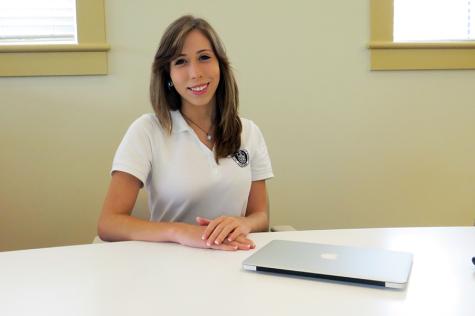Can weather really affect your mood?
Florida’s seasons can be rather unpredictable, leaving its residents scrambling to prepare for the right conditions.
Have you ever felt that the weather matches your mood? Noticed that things never seem to go your way on a rainy day? Even in movies, the characters are elated and carefree during bright, warm days, yet as tensions grow and conflicts ensue, a literal storm builds on the horizon.
Sunny days, cloudy days, foggy days, chilly days; they all occur throughout the year, but can they really affect your mood? Many psychologists seem to think so.
Dr. John Grohol, author of the article “Weather Can Change Your Mood”, goes into great depth about the supported psychological evidence that weather does alter the mood of people. He draws the attention away from the usual weather conditions said to affect mood (i.e. a cold, rainy day) and focuses more on the commonly overlooked natural component of humidity.
Grohol uses the experiments conducted by Howard and Hoffman in 1984 to serve as evidence for his article. Howard and Hoffman asked 24 college students to fill out a daily survey for 11 days in order to keep track of their mental states. The results: “Humidity, temperature, and hours of sunshine had the greatest effect on mood. High levels of humidity lowered scores in concentration while increasing reports of sleepiness. Raising temperature lowered anxiety and skepticism. The number of hours of sunshine was found to predict optimism scores significantly”.
Students were used for many of the experiments conducted, however some think a teacher’s viewpoint could have proved just as, if not more, accurate. Educators face throngs of different students each day, giving them the ability to observe widespread changes in behavior due to weather.
“Weather definitely has an effect on student behavior and student performance,” Dr. Lauren Oetinger replies when asked about her own classroom observations. “And not just in terms of hot and cold or rainy and sunny. Very often we tap into what goes on, environmentally, around us.” She goes on to describe her time in Mississippi and how, during tornado season, both students and teachers alike became on-edge and alarmed. Dr. O also points out how we in Tampa, Florida have a similar anxious reaction when hurricane season rolls around.
Seasonal affective disorder (S.A.D.) is a confirmed mood disorder found in people all over the globe. Signs of this disorder include constant exhaustion, trouble getting up in the morning, nausea, pessimism or depressive attitudes, seclusion, and anxiety. All of these symptoms occur along a specific cycle in accordance with the seasons. A common treatment for this disorder, and others like it, is light therapy. This consists of exposure to a specific type of lamp that simulates sunlight for prescribed amounts of time.
Weather has shown time and time again that it does have an effect on the human psyche and can lead to both negative and positive effects. So the next time you seem to be having a bad day, use Florida’s title of “The Sunshine State” to your advantage and go soak up some sun.

Jessica Jurado has been an Achona staff member for two years and is now the Fashion and Beauty Editor. She is also a part of the school club TLC (Teen...











